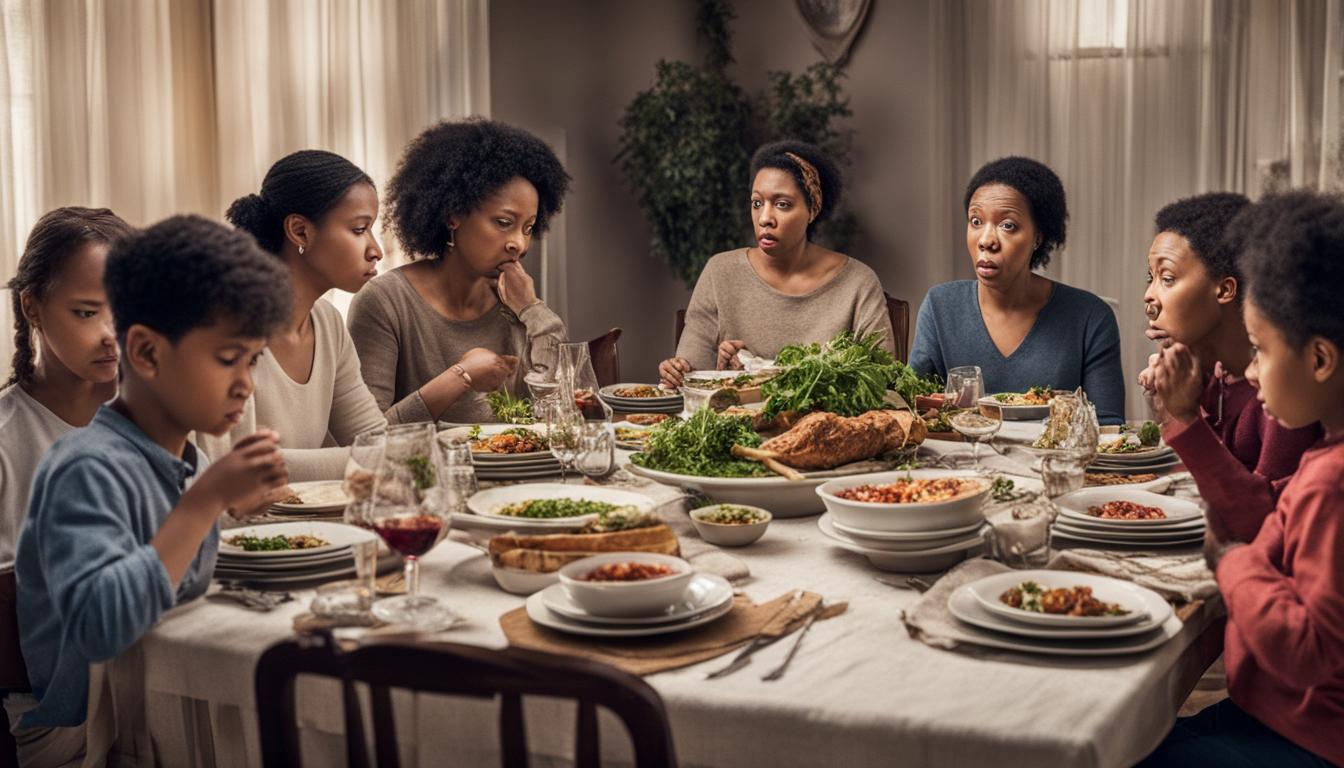Exploring the stories of Borderline Mothers, we delve into the intricate mix of strength and fragility that characterizes each tale. These narratives provide insight into the complicated dynamics of being raised by a mother with Borderline Personality Disorder, prompting us to contemplate the enduring effects of these relationships.
The complexities of navigating these emotional landscapes and the journey towards healing beckon us to delve deeper into the depths of these stories, unearthing both struggles and triumphs that shape the lives of those who share this common thread.
Key Takeaways
- Setting clear boundaries crucial for well-being.
- Self-care practices aid in coping.
- Seeking support from community beneficial.
- Healing from trauma requires time and effort.
Impact of Growing up With BPD Mother
Growing up with a mother who's Borderline Personality Disorder (BPD) can profoundly impact a child's emotional well-being and sense of self. Children of mothers with BPD often face emotional instability stemming from their mother's inconsistent parenting.
These children may struggle to develop a stable sense of self-worth and identity due to the unpredictable nature of their mother's behaviors. The constant exposure to their BPD mother's intense emotional reactions can cultivate chronic fear, anxiety, and feelings of inadequacy within them.
The chaotic and unstable environment created by their mother's mood swings can leave children grappling with deep-seated insecurities and a lack of emotional stability. Consequently, these experiences can have lasting effects on their emotional well-being and relationships, shaping how they perceive themselves and interact with others in the world around them.
Understanding the impact of growing up with a BPD mother is crucial in addressing the challenges that children of BPD mothers face in their formative years.
Coping Strategies and Self-Care

To effectively navigate the challenges of having a mother with Borderline Personality Disorder (BPD), implementing coping strategies and prioritizing self-care is essential. Setting clear boundaries with your BPD mother is crucial in safeguarding your emotional well-being. By establishing limits on interactions, you can protect yourself from potential harm while maintaining a level of control over your personal space.
Engaging in self-care practices such as mindfulness, meditation, or pursuing hobbies can significantly reduce stress levels and contribute to overall mental health. Seeking support from friends, therapists, or support groups can provide a valuable outlet for processing emotions and gaining perspective on coping strategies.
Prioritizing your own needs and boundaries is key to striking a balance between self-care and managing your relationship with your BPD mother. Embracing self-compassion allows for a deeper understanding and acceptance of your experiences, fostering personal growth and aiding in the healing process.
Finding Support and Community
Seeking out support and community can significantly enhance one's journey of navigating life with a borderline mother. When dealing with Borderline Personality Disorder (BPD) in a family member, it's crucial to explore various avenues for assistance and connection:
- Joining Support Groups: Online platforms like Reddit's r/BPDlovedones provide a safe space to share experiences, gain insights, and receive advice from individuals facing similar challenges.
- Exploring Therapy Options: Therapies like Dialectical Behavior Therapy (DBT) are specifically tailored to help individuals cope with the complexities of having a borderline mother, offering practical strategies for managing emotions and relationships.
- Utilizing Mental Health Helplines: Organizations such as the National Alliance on Mental Illness (NAMI) offer immediate support and guidance, ensuring that individuals never feel isolated or overwhelmed in their journey of understanding and connecting with others in similar situations.
Navigating Relationships With a BPD Mother

Navigating relationships with a BPD mother requires establishing clear boundaries and prioritizing emotional well-being. Children of BPD mothers often face fear and anxiety stemming from the unpredictability of their mother's behavior. Setting boundaries is essential to protect oneself and seek therapy to develop coping mechanisms.
BPD mothers may engage in manipulative behaviors that can deeply impact their children's self-worth and self-esteem. Understanding the effects of a BPD mother on relationships is crucial for individuals to break free from harmful influences and cultivate healthier boundaries. This awareness empowers individuals to recognize manipulative tactics and safeguard their emotional health.
Seeking support from therapists, support groups, or trusted individuals plays a vital role in managing the challenges associated with having a BPD mother. By prioritizing self-care and seeking help, individuals can navigate these complex relationships with resilience and protect their emotional well-being.
Healing From Childhood Trauma
Healing from childhood trauma caused by a borderline mother necessitates a journey of self-discovery and therapeutic intervention to address deep emotional wounds. Understanding the impact of childhood trauma from a borderline mother is crucial for personal growth and healing. To embark on this healing journey, individuals must consider the following:
- Therapy: Seeking professional help, such as therapy specialized in trauma and Borderline Personality Disorder (BPD), can provide valuable tools and insights to navigate the complexities of childhood trauma.
- Healthy Coping Strategies and Boundaries: Developing healthy coping mechanisms and setting boundaries are essential steps in breaking free from the cycle of emotional turmoil associated with growing up with a borderline mother.
- Self-Compassion and Resilience: Reclaiming one's well-being after childhood trauma requires self-compassion and resilience. Acknowledging the past, processing emotions, and focusing on self-care and healing are crucial components of this journey towards healing from the emotional scars left by a borderline mother.
Frequently Asked Questions
What Does a Mother With BPD Look Like?
A mother with BPD may exhibit intense mood swings, impulsive behaviors, and difficulty regulating emotions. These traits can manifest in erratic parenting styles, inconsistent emotional support, and challenges providing stability.
Children of BPD mothers may experience a rollercoaster of emotions, manipulation, and control in their interactions. It's crucial to understand these complexities with empathy and awareness to navigate relationships effectively.
How Do Borderline Mothers Treat Their Daughters?
Borderline mothers may fluctuate between extremes in how they treat their daughters, from overwhelming affection to outbursts of anger. This inconsistency can create a turbulent environment for their daughters, leading to emotional manipulation, guilt, and invalidation of feelings.
The struggle to provide stable emotional support due to their own emotional dysregulation can result in daughters feeling anxious, with low self-esteem, and challenges in forming healthy relationships.
What Is the Trauma of a Borderline Mother?
The trauma of a borderline mother can deeply impact her children, causing chronic guilt, shame, and emotional instability in the parent-child relationship.
Children may develop intense fear of abandonment, leading to anxiety and insecurity.
Living with a borderline mother can result in self-blame, self-criticism, and feelings of unworthiness.
This unpredictable behavior can create emotional distress and hinder healthy development, manifesting in toxic shame, chronic stress, and struggles with asserting needs.
Can Someone With BPD Be a Good Mom?
Yes, someone with BPD can be a good mom with the right treatment and support. When managed effectively, BPD symptoms don't define parenting abilities.
Love, care, and dedication are still present despite the challenges. Seeking help and coping strategies are crucial for fulfilling parenting responsibilities.
With self-awareness and growth, creating a nurturing environment for children is possible. It's about managing symptoms and fostering a supportive environment for both the mother and her children.
Conclusion
In conclusion, navigating the complexities of growing up with a BPD mother can be a challenging journey, but finding support, setting boundaries, and prioritizing self-care are essential steps in healing from childhood trauma.
Remember, every cloud has a silver lining, and by sharing our stories and seeking understanding, we can find empowerment and solace in knowing we aren't alone in our struggles.
Stay strong, and remember to prioritize your own well-being on this path to healing.









